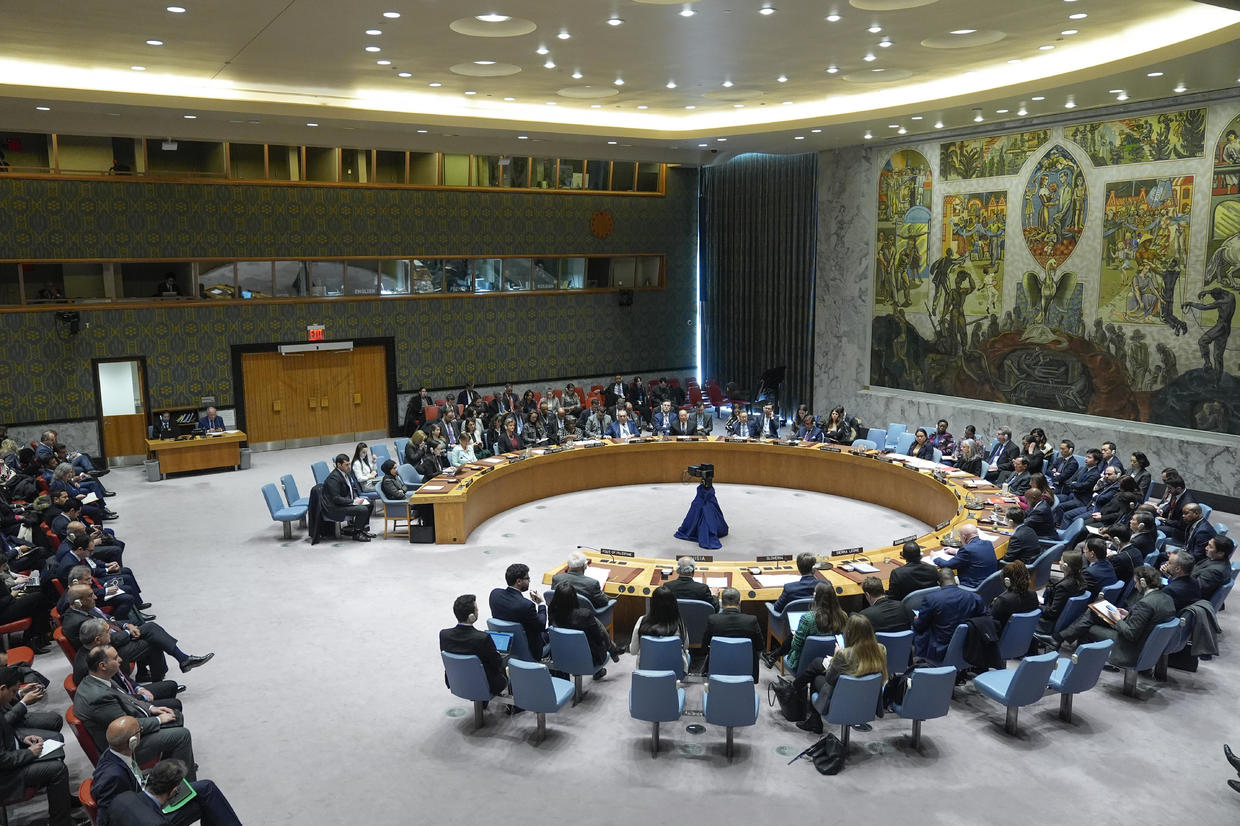The United States has once again used its veto power to block a UN Security Council resolution calling for an immediate humanitarian cease-fire in the Gaza Strip, where Israel has been waging a devastating military campaign against Hamas militants since November.
The US was the only member to vote against the draft resolution, which was sponsored by Algeria on behalf of Arab states and had the support of 13 other council members. The UK abstained, citing concerns over the wording of the text.
The resolution would have demanded that Israel and Hamas stop all hostilities and respect international humanitarian law, as well as allow the unimpeded delivery of aid to the besieged enclave. It would have also urged the release of all hostages held by both sides, and called for a comprehensive and lasting solution to the Israeli-Palestinian conflict based on a two-state solution.
The US, however, argued that the resolution was unbalanced and would undermine the ongoing efforts to broker a deal between Israel and Hamas that would secure a temporary cease-fire and the release of all hostages. The US also accused Hamas of being responsible for the escalation of violence and the suffering of civilians in Gaza.
Instead, the US circulated its own draft resolution, which would condemn Hamas for its rocket attacks and tunnel infiltration into Israel, and support a temporary cease-fire in Gaza linked to the release of all hostages. The US resolution would also call for the lifting of all restrictions on the delivery of humanitarian aid, and urge the parties to resume negotiations for a lasting peace.
The US said it would engage in intensive negotiations with other council members on its draft resolution, but did not specify a timeline for a vote. The US also said it recognized the urgency of the situation and the need to end the bloodshed.
The Arab states, however, expressed disappointment and frustration over the US veto, and said they would continue to press for a Security Council action to protect the civilians in Gaza and end the Israeli aggression. They also warned that the failure of the council to act would further erode its credibility and legitimacy.
The Palestinian observer to the UN said the US veto did not absolve Israel of its obligations under international law, and called for the international community to hold Israel accountable for its war crimes and violations of human rights. The Israeli ambassador to the UN said a cease-fire would be a death sentence for both Israelis and Palestinians, and claimed that Israel was acting in self-defense and doing everything possible to avoid civilian casualties.




Comments
Post a Comment